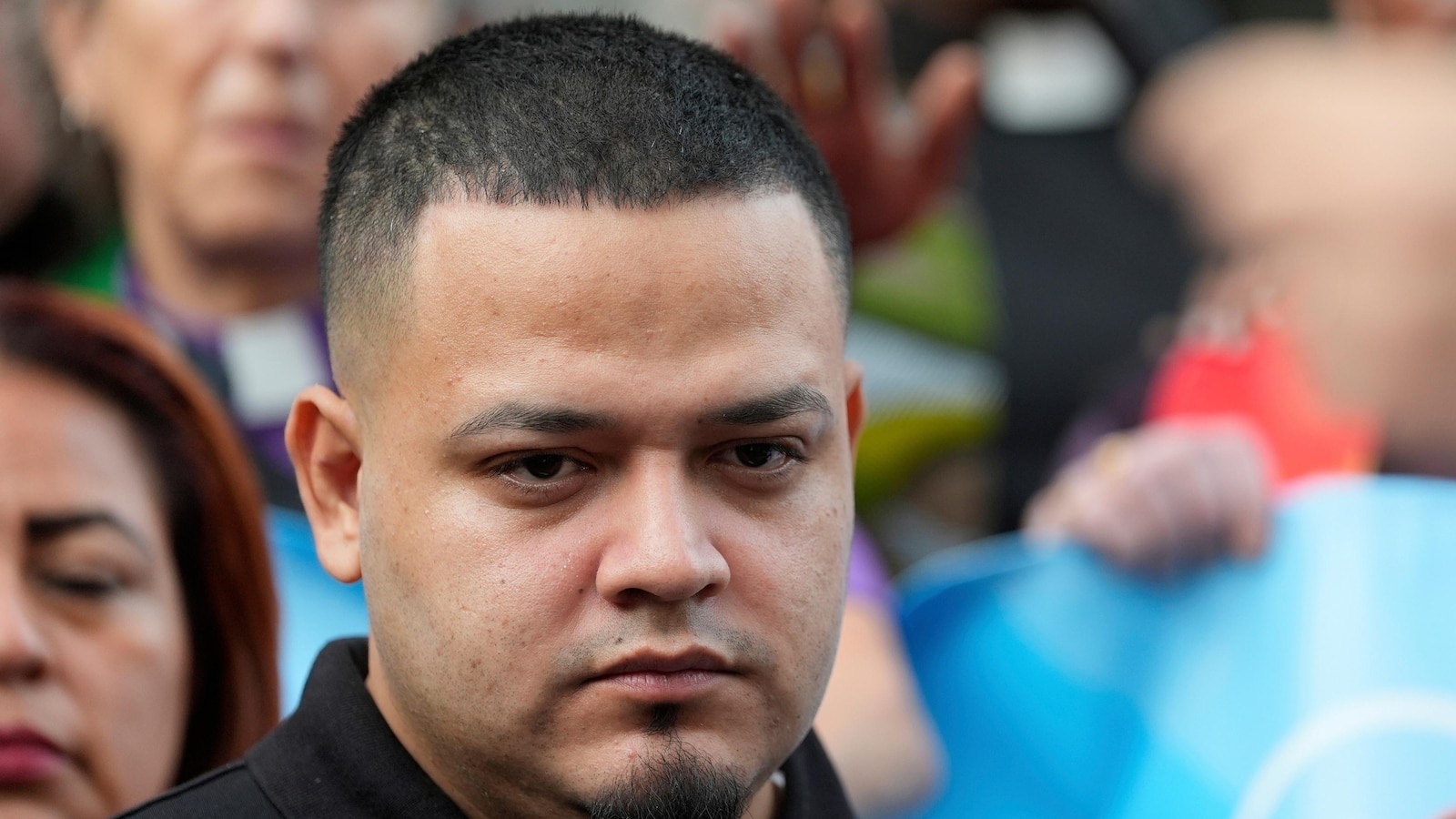U.S. Plans Deportation of Kilmar Abrego Garcia to Liberia Amidst Legal Challenges
The U.S. government intends to deport Kilmar Abrego Garcia, who has an American family, to Liberia by October 31, despite a federal judge's block and previous protection from deportation to El Salvador.
Subscribe to unlock this story
We really don't like cutting you off, but you've reached your monthly limit. At just $5/month, subscriptions are how we keep this project going. Start your free 7-day trial today!
Get StartedHave an account? Sign in
Overview
- Kilmar Abrego Garcia, who has an American wife and child and resided in Maryland for years, is facing deportation by the U.S. government for illegally immigrating as a teenager.
- An immigration judge previously granted Abrego Garcia protection from deportation to El Salvador, citing a credible fear of violence if he were returned there.
- The U.S. government, under a deal brokered by the Trump administration, now plans to deport Abrego Garcia to Liberia, with a target date as early as October 31.
- A federal judge in Maryland initially blocked the immediate deportation to Liberia, but U.S. authorities maintain their intention to proceed with the deportation by October 31.
- This complex deportation case has generated opposition and brought renewed scrutiny to President Trump's immigration policies and their implementation.
Report issue

Read both sides in 5 minutes each day
Analysis
Center-leaning sources cover this story neutrally, presenting a balanced account of Kilmar Abrego Garcia's deportation case. They detail the government's plans and rationale, alongside the defense's objections and legal arguments. The reporting avoids loaded language and provides comprehensive background, allowing readers to understand the complexities from multiple perspectives without editorial bias.
Articles (3)
Center (2)
FAQ
Kilmar Abrego Garcia cannot be deported to El Salvador due to a previous immigration judge's order granting him protection from deportation to that country because of credible fear of violence. After mistakenly being deported there earlier, the US government, under a Trump administration deal, is now seeking to deport him to Liberia, which has agreed to accept him after other African countries declined.
A federal judge in Maryland initially blocked Kilmar Abrego Garcia's immediate deportation to Liberia, and his lawsuit claims the Trump administration is illegally using the deportation process to punish him for the prior mistaken deportation. Despite this, US authorities intend to proceed with his deportation.
The Trump administration has accused Kilmar Abrego Garcia of being a member of MS-13, a US-designated terrorist organization, based on a 2019 immigration court bail determination. He has denied these allegations and pleaded not guilty to human smuggling charges.
Kilmar Abrego Garcia has no personal connection to Liberia. The US government identified Liberia as one of the few countries willing to accept him for deportation after Uganda, Eswatini, and Ghana declined. Liberia is described by the US government as a thriving democracy and close US partner with human rights protections.
Kilmar Abrego Garcia's lawyer criticized the plan to deport him to Liberia, a country with which he has no connection and which is thousands of miles from his family and home in Maryland, expressing concerns about the impact on his client.
History
- This story does not have any previous versions.



